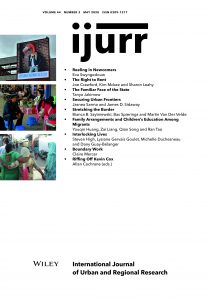Suburban space provides a useful window onto contemporary class practices in Africa, where it is difficult to identify social classes on the basis of income or occupation. In this article I argue that the middle classes and the suburbs are mutually constitutive in the Tanzanian city of Dar es Salaam. Using interviews with residents and local government officials in the city’s northern suburbs, I discuss the material and representational practices of middle‐class boundary work in relation to land and landscape. If the middle classes do not presently constitute a coherent political‐economic force, they are nevertheless transforming the city’s former northern peri‐urban zones into desirable suburban residential neighbourhoods.

